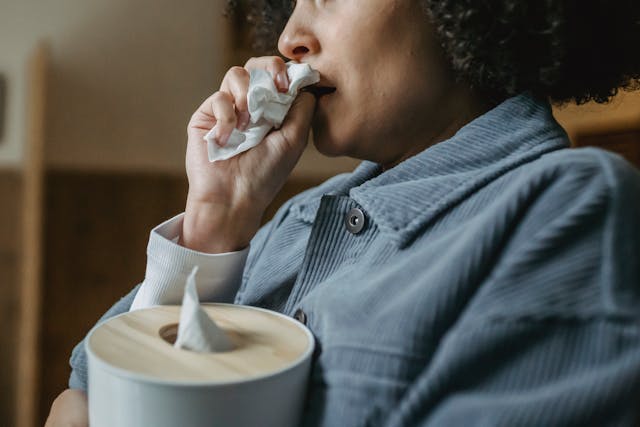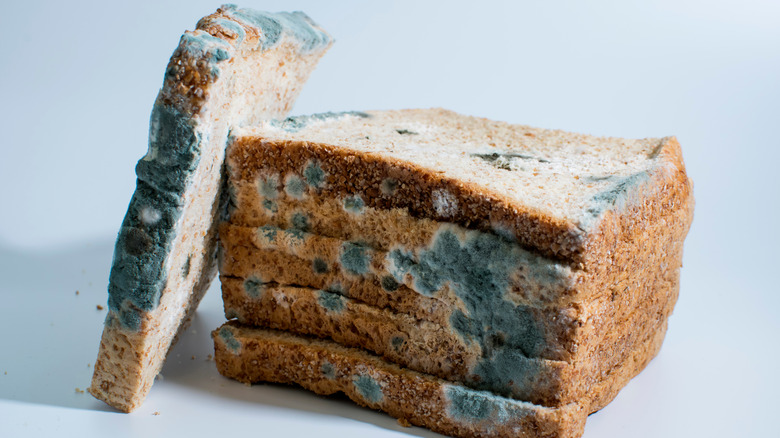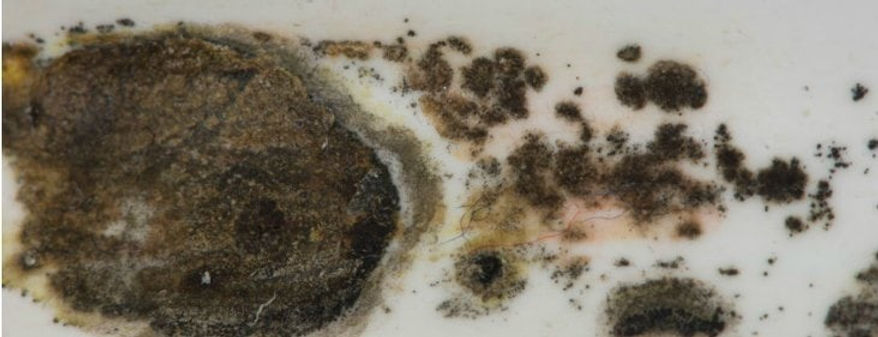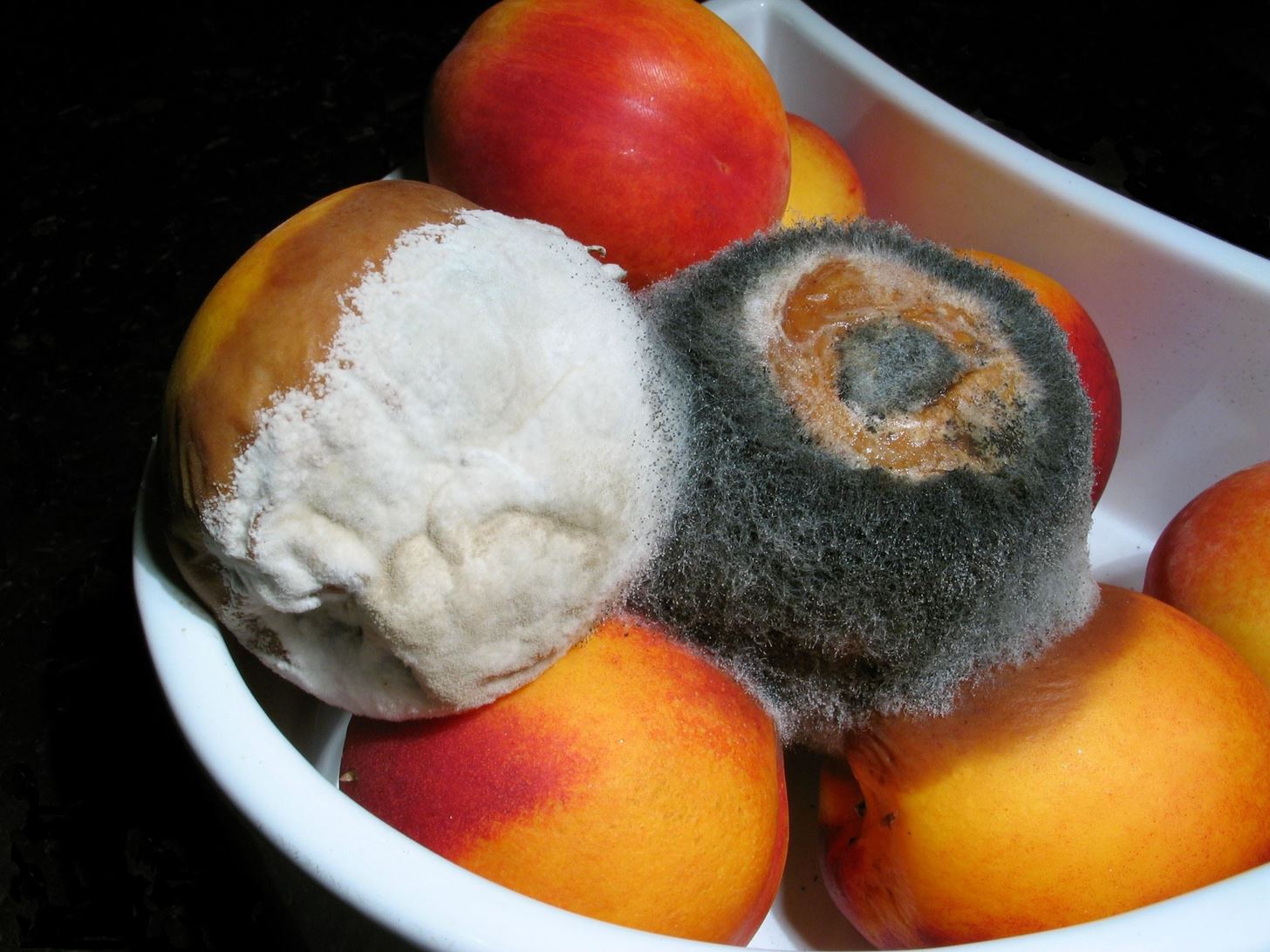
What Is Black Mold?
Black mold is a type of fungus commonly found in areas with excessive moisture, such as basements, bathrooms, or areas with water damage. While black mold is typically more harmful when inhaled over prolonged periods, ingesting it can also pose health risks, particularly for people with mold allergies, compromised immune systems, or respiratory conditions.
For more information on black mold and its dangers, check out this CDC guide on black mold.
What Happens If You Eat Black Mold?

So, what happens if you eat black mold? The severity of your reaction depends on how much mold you consumed and your individual health conditions. Here are the most common effects of eating mold:
1. Gastrointestinal Issues
Most people who accidentally consume black mold will experience mild to moderate gastrointestinal issues, such as nausea, vomiting, diarrhea, and stomach cramps. This is because mold produces mycotoxins—harmful compounds that can irritate the digestive system.
2. Allergic Reactions
If you’re allergic to mold, ingesting black mold can trigger an allergic reaction. Common symptoms include itching, swelling, nasal congestion, and difficulty breathing. In severe cases, it can lead to anaphylaxis, a life-threatening reaction that requires immediate medical attention.
3. Respiratory Symptoms
While black mold is primarily harmful when inhaled, consuming it can still affect your respiratory system. Ingesting mold spores may lead to symptoms like coughing, sneezing, or a sore throat. If you have asthma or other respiratory conditions, mold exposure (whether through eating or inhaling) can worsen your symptoms.
4. Immune System Suppression
Some types of mold, including black mold, produce mycotoxins that can suppress the immune system. For individuals with weakened immune systems—such as those undergoing chemotherapy or living with chronic illnesses—ingesting mold can lead to more severe health complications, such as infections or prolonged illness.
5. Neurological Effects
While rare, consuming large amounts of mold over a long period may lead to neurological effects. Some mycotoxins can affect the nervous system, causing confusion, dizziness, headaches, or mood changes. This is more likely to occur with chronic exposure rather than a single instance of ingestion.
If you’ve eaten black mold and are experiencing severe symptoms, it’s important to seek medical advice immediately. You can learn more about the health risks of mold exposure in this Healthline guide on mold-related illnesses.
What Should You Do If You Eat Black Mold?

If you realize you’ve accidentally eaten black mold, don’t panic. In most cases, consuming a small amount won’t cause serious harm, but it’s essential to monitor your symptoms and take appropriate action. Here’s what you should do:
| Step | What to Do |
|---|---|
| 1. Stop Eating Immediately | If you notice mold on your food while eating, stop consuming it right away. Throw out the moldy portion of the food and inspect any surrounding areas for signs of mold contamination. |
| 2. Drink Plenty of Water | Drinking water can help flush out any toxins from your system and reduce the chances of gastrointestinal discomfort. Stay hydrated and monitor your symptoms over the next few hours. |
| 3. Monitor for Symptoms | Pay attention to any signs of gastrointestinal issues, allergic reactions, or respiratory symptoms. If you experience mild symptoms such as nausea or a stomachache, they should pass within a few hours. However, if symptoms worsen or persist, seek medical attention. |
| 4. Call a Doctor If Necessary | If you experience severe symptoms—such as difficulty breathing, chest pain, or prolonged vomiting—it’s important to call a doctor or visit an urgent care center. In rare cases, consuming black mold can lead to more serious health complications that require medical treatment. |
If you’re concerned about mold in your home or have experienced recurring symptoms from mold exposure, consider contacting a mold remediation expert like Citywide Mold Mitigation to ensure your home is free of dangerous mold growth.
How to Prevent Mold on Food
The best way to avoid the risks of eating black mold is to prevent mold growth on your food in the first place. Here are some tips to keep your food mold-free:
1. Store Food Properly
Mold thrives in warm, moist environments, so it’s important to store food in cool, dry places. Keep perishable items like bread, fruits, and leftovers in airtight containers or in the refrigerator to reduce the risk of mold growth.
2. Inspect Food Regularly
Check your food for signs of mold before eating it, especially if it’s been stored for an extended period. Mold can grow quickly, so inspect food closely for any discoloration, fuzzy patches, or off smells.
3. Discard Moldy Food
If you notice mold on any part of your food, it’s safest to discard the entire item. Even if the mold is only visible on one section, the spores can spread throughout the food, making it unsafe to eat.
4. Clean Your Fridge Regularly
Regularly cleaning your refrigerator helps prevent mold spores from spreading to your food. Wipe down shelves, drawers, and seals with a mixture of water and vinegar to keep mold at bay.
For more tips on preventing mold growth in your kitchen, check out this FDA guide on mold in food.

FAQ
| Question | Answer |
|---|---|
| What happens if you accidentally eat black mold? | Accidentally eating black mold may lead to symptoms such as nausea, vomiting, diarrhea, or allergic reactions. Most cases are mild, but severe symptoms may require medical attention. |
| Is black mold on food dangerous? | Yes, black mold on food can be dangerous, especially if consumed in large quantities. It produces mycotoxins that can irritate the digestive system and cause allergic reactions or respiratory issues. |
| How do I know if I’ve eaten black mold? | If you notice mold on food after eating it, or if you experience symptoms like nausea or vomiting shortly after eating, you may have consumed black mold. Monitor your symptoms and seek medical attention if necessary. |
| Can mold on food make you sick? | Yes, consuming moldy food can cause digestive issues, allergic reactions, and in severe cases, respiratory symptoms or immune suppression. It’s important to avoid eating food that shows signs of mold. |
| How can I prevent mold on my food? | To prevent mold on food, store perishable items in the refrigerator, use airtight containers, inspect food regularly for signs of mold, and clean your refrigerator frequently to reduce mold spores. |
If you’re concerned about mold in your home, contact Citywide Mold Mitigation for professional inspection and mold removal services.

